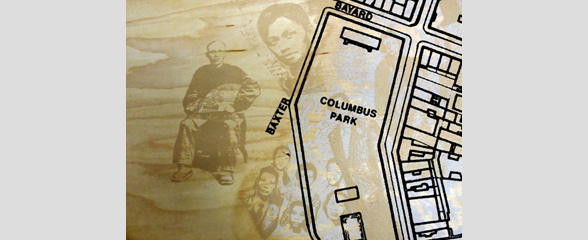Manufacturing industries

2008.040.013 Oral History Interview with Larry Goodman December 16, 2007
Larry Goodman, todays owner of his familys corporation Grand Machinery Exchange, Inc., recounts how his first generation Polish grandfather founded the company in 1927. Goodmans father Jerry and uncle Isidore took control of the business in 1947, and Larry Goodman later succeeded his father in 1983. According to Goodman, Centre Street machinery dealers were predominantly Jewish and were often afraid of non-Jewish “outsiders.†These business men were concerned with gaining respect and carried physical and psychological hardships because of this work ethic. Goodman also recalls the mixture of unity and intense competition between Jewish and Italian machinery dealers, the whole of which was referred to as the “forty thieves,†since most of the dealers were considered unrefined and were occasionally accused of having questionable business ethics.
Goodman reminisces about Chinatown as the industrial center of Manhattan, where he saw gradual sociological changes between the 1950s and 2000, including industry, hardware, and supporting retail spaces systematically leaving the area. Goodman sold the Grand Machinery Exchange shop building in 2005, explaining that business was no longer viable on Centre Street. He also notes the growing presence of Chinese-owned businesses on Centre Street, incorporating the neighborhood as a part of Chinatown rather than SoHo. Goodman reflects on how Centre Street has cycled through machinery and manufacturing, the garment industry, living-working spaces for creatives, and now finally to expensive developments. Furthermore, when asked to imagine the future of Chinatown, Goodman argues that money will dictate the outcome as part of a natural economic cycle. In his eyes, wealthy populations will move into the area, demand more luxury services and support and retail to accommodate their lifestyle and living spaces, and replace “mom and pop†establishments that can no longer afford to remain there.